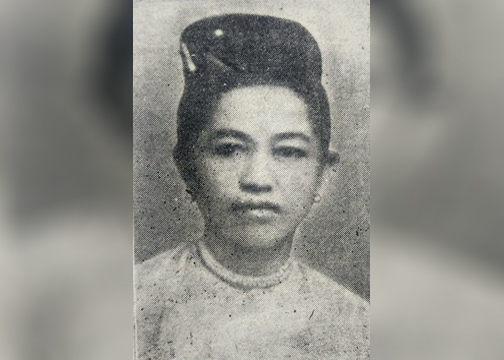YANGON—On this day 100 years ago, the Darna Thukha, an organization led by women to fight British colonial rule in Burma, also known as the Wunthanu Kumari Association, was established. The association was the second political organization led by women to be founded in Myanmar, after the Burmese Women’s Union, also founded in 1919.
In an act of resistance to colonial rule, the association urged citizens to use domestically manufactured goods rather than imported products. The Darna Thukha also urged Myanmar women not to marry foreigners. The association had nine branches in Yangon and also had branches in other parts of the country.
The association raised funds for politicians U Ba Pe, U Pu and U Tun Shein for a trip to London to ask for political reforms from the British. The Darna Thukha also funded the 1920 student protests against the education laws of the British government, now recognized annually on Myanmar’s National Day.

The association members took part in the protest against the arrest of independence leader and Buddhist monk U Ottama at Queen Victoria Park (now Maha Bandula Park) in Yangon in 1921. Many members of the Darna Thukha were injured in the ensuing police crackdown.
Together with other nationalist women’s organizations, the Darna Thukha Association took an active part in the anti-colonialist movement for more than a decade. Later on, however, it faded into obscurity amid disputes over Burma’s separation from India. Myanmar was a province of British India from colonial annexation in 1886 until the British separated Burma from India in 1937. British Burma then had its own constitution; this ostensibly allowed for an elected legislature, but the transition soon led to a general strike and widespread protests.
Translated from Burmese by Thet Ko Ko
You may also like these stories:
The Day Myanmar’s Last King Surrendered to the British
The Day Students Barricaded Myanmar’s Secretariat to Oppose Colonial Rule
Myanmar’s Image ‘Severely Damaged’ by Int’l Legal Cases Over Rohingya: Govt

















